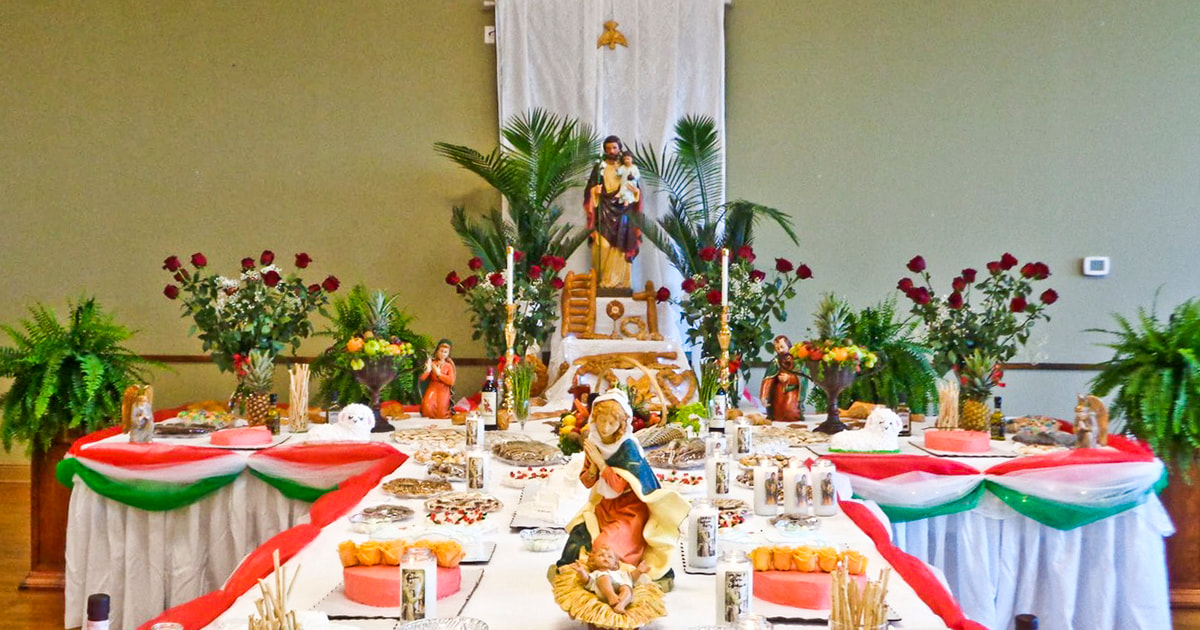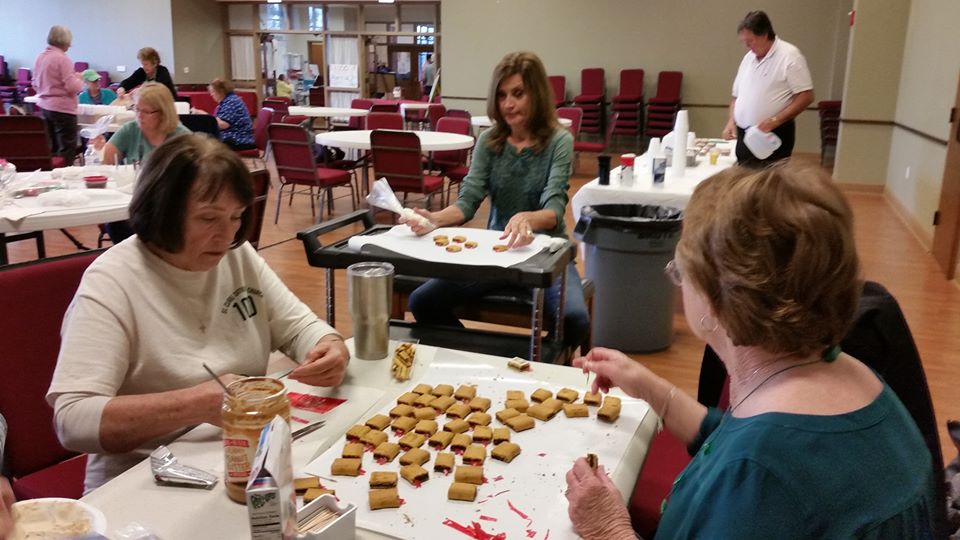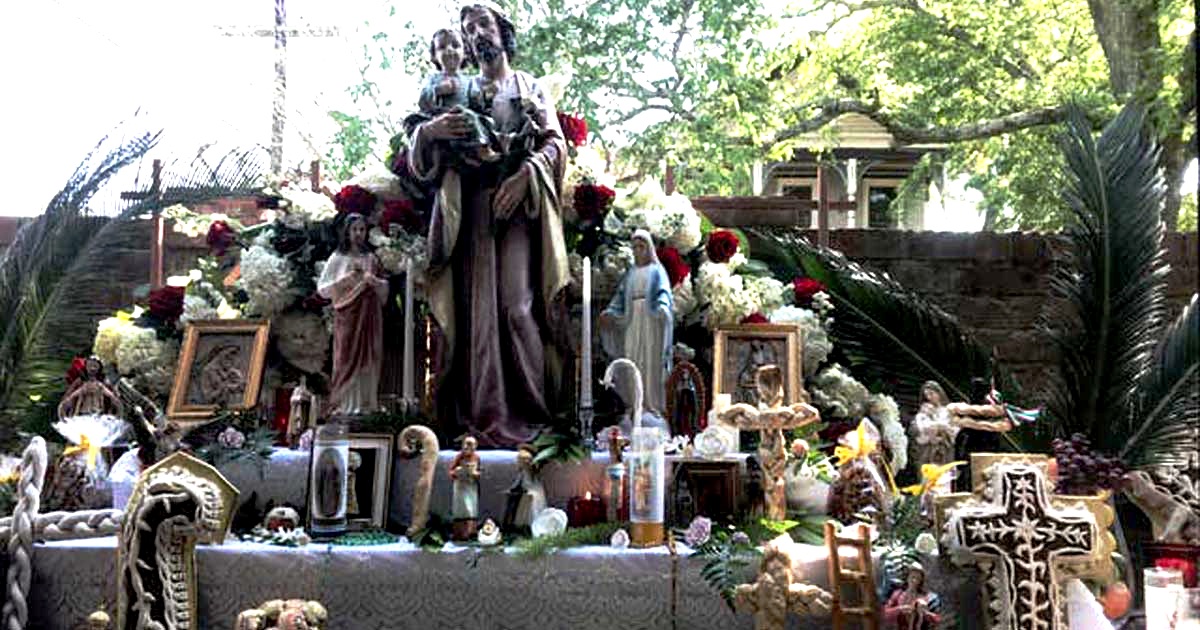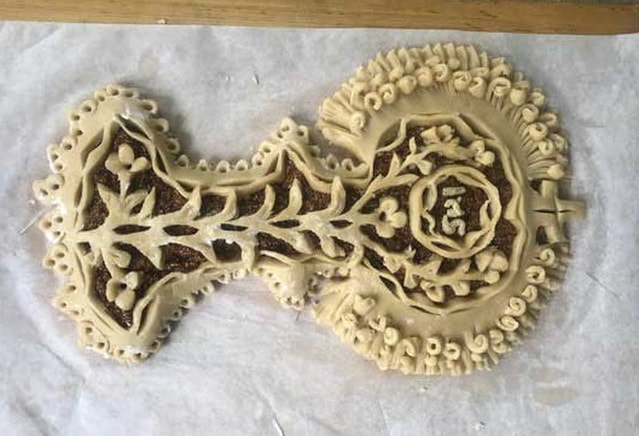March 19 is St. Joseph's Day and as part of the tradition, special - and edible - altars are built. Learn more about how locals celebrate in Bay-Waveland.
Although as of this March 12 publication, Our Lady of the Gulf and 100 Men Hall have cancelled their St. Joseph's Day altars, while St. Clare's is open for viewing on March 19 from 9am - 5pm. - story by Lisa Monti
The annual altars or tables are covered with symbolic representations, such as bread baked in the shape of hammers and other tools in honor of the carpenter Joseph. There are cookies symbolizing pine cones and made with figs, which are plentiful in Sicily.
Fava beans, symbols of sustenance, are blessed by parish priests on altars and carried by believers in a pocket or purse for good luck. Because St. Joseph’s feast day falls during Lent, there is no meat on the altars, only seafood and vegetables, but everything is in abundance to share. Our Lady of the Gulf in Bay St. Louis
At Our Lady of the Gulf, the ceremony this year has been postponed due to coronavirus concerns. In past years, the altar opened for viewing early in the morning. After the 10 am Mass, three children portraying the child Jesus, Mary, and Joseph led everyone from the church next door to the Community Center. Following tradition, they knocked and were turned away on two doors. When they reached the third door, they were allowed to enter.
The presiding priest then blessed the altar, laden with thousands of cookies and other sweets and casseroles prepared by parishioners. Everything is always handmade, again following tradition. St. Clare's in Waveland
As of this story's publication on March 12, the St. Clare Catholic Church’s St. Joseph Altar celebration is still planned. The altar will be open at 9am and it will remain open to the public until 5pm. Following the closing of the altar there will be a children’s skit re-enacting the life of Jesus, Mary and Joseph. This will be followed by a meatless meal. All are invited to attend this event.
100 Men Hall
As of this writing, the 100 Men Hall’s St. Joseph Altar is still slated open to the public for viewing at noon on March 19. Owner Rachel Dangermond said the altar is being spearheaded by new Bay resident Linda Belou, a New Orleanian of Sicilian descent. She and Nick Scramuzza created many memorable St. Joseph Altars at the Love Lost Lounge in the city.
“Nick was kind enough to let Linda use most of the icons he collected over the years,” said Rachel. “St. Rose de Lima’s Father Agustinus will bless the altar at 5pm, and all monetary donations will benefit St. Rose de Lima.”
The Hall hosted a cuccidota baking workshop in February, and some members of the local Italian Society joined in. The fig cakes will be baked and put on the altar. The altar will have lemons that symbolize love, and dried pasta, cooked pasta and other dishes. Tomatoes and olives typically adorn the altars.
“This is truly a community cultural event for everyone to experience,” said Rachel. “The community is invited to bring items for the altar, food that could be shared at room temperature (no meat dishes, please), and to enjoy the feast. Whatever is left at the end is packaged and donated to the community.”
Comments are closed.
|
Categories
All
Archives
July 2024
|
Shoofly Magazine Partners
Our Shoofly Partners are local businesses and organizations who share our mission to enrich community life in Bay St. Louis, Waveland, Diamondhead and Pass Christian. These are limited in number to maximize visibility. Email us now to become a Shoofly Partner!


































 RSS Feed
RSS Feed























